
Caitlin Rose
Songwriting meets Caitlin Rose, a rising Nashville starlet who’s also starting to make waves on this side of the pond
![]() inger/songwriter Caitlin Rose is probably the most exciting new country artist to come out of Nashville over the last few years. As well as being a huge success in the US, she’s also – unlike many country artists – been developing a large following in the UK.
inger/songwriter Caitlin Rose is probably the most exciting new country artist to come out of Nashville over the last few years. As well as being a huge success in the US, she’s also – unlike many country artists – been developing a large following in the UK.
Caitlin grew up in Nashville, the centre of songwriting in the US, the daughter of music industry parents. Her mother, Liz Rose, is a songwriter who has had great success working with artists like Taylor Swift, Leann Womack and others. To date, Caitlin has produced two acclaimed country albums, Own Side Now and The Stand-In. Her voice and lyrics have led to some to compare her to Patsy Cline and Iris DeMent, and Claire Suddath of Time magazine named Own Side Now one of the Top 10 albums of 2011.
Caitlin recently sold out the Union Chapel in Islington with the wonderful support/backing band Los Colognes, and Songwriting was lucky enough to catch up with her after the show…
 Tell us a bit about your growing up… didn’t we read that your grandmother was a journalist?
Tell us a bit about your growing up… didn’t we read that your grandmother was a journalist?
“She went to Stanford for journalism, she wasn’t a journalist. She’s actually a pretty good writer. I think it was one of the things I picked up from her, she used to write all our birthday cards. She’d write us long, epic poems about the cat, and short stories about us getting into trouble. She just had a knack for. She’s a very clever woman.”
Your mother, Liz Rose, is a successful Nashville songwritier, co-writing songs with Taylor Swift. Do you give each other tips?
“We don’t really do tips: our writing relationship is very much even. I mean, just because she’s a hit songwriter doesn’t mean she hasn’t still got a lot to learn, and just because I think I’m brilliant (she says, tongue in cheek) doesn’t mean I don’t! We bounce stuff off each other. It’s usually not a critique since we do something so different. But I am a little bit of a bitch sometimes and say something like: ‘You can’t put “silly” in a song,’ and she says, ‘Well it’s got me so-and-so dollars so yes I can!’.
“When my mother writes a song I love, it’s one of the best feelings in the world and I think it’s the same with her. She didn’t start writing until she was 40, not even a poem. It was sort of an accident. My parents got divorced when I was 10 and she was working in a bank. She had all these friends in the music industry and she hung around with these writers. She started as a plugger and somehow blagged her way into being one of the top songwriters in Nashville – by having a knack for it that she never knew about.”
Which just goes to show that people can become songwriters at any age…
“Yes, if anyone has a sob story to tell, I tell them that and they shut the f**k up!”
What kind of music was on your CD player when you were growing up?
“Everything from Bikini Kills and Bright Eyes to Indian pop and anime film soundtracks… I still listen to everything. I have no one genre. Very eclectic.”
“Country is three chords and the truth, punk is three chords and anger”
You also used to be into punk, didn’t you? Was that your ‘rebellious’ phase?
“Everything is a rebellion when you’re 15 years old. It was a rebellion as much as finding a love for something. Country is three chords and the truth, punk is three chords and anger.”
When you write songs do the lyrics come first, generally, or the melody?
“Usually the lyrics and melody and then I sit down for eight hours trying to figure it out. Or I co-write with someone who can play a guitar better than me – which is everyone.”
Your first album Own Side Now was written mostly by yourself, while your latest The Stand-In is mostly co-written with writers including Skylar Wilson and Jordan Lehning. Why the change of approach?
“You’re right, The Stand-In is very much a collaboration. I really love co-writing. It’s like being in His Girl Friday with Cary Grant – everyone has their role. I don’t really hold back. I don’t say no with co-writes. When you write with someone you always think it’s going to be the best song ever.
“It’s completely different from writing on your own. I have someone to bounce things off and they have something to bounce off with me. I can take something someone’s said and then rephrase it.”
 Are the lyrics still generally by you, then?
Are the lyrics still generally by you, then?
“Even with co-writing I’m a little domineering. With lyrics I am very stubborn, in a good way, but I do listen. I feel it’s more my role. I love playing guitar in the bedroom but getting on stage with one is not the easiest thing for me. It’s nice when you have a bunch of people on stage who are a whole lot better.”
Do you always keep a notepad by your side?
“I usually just type in iNotes. Sometimes it’s hard and I know I have to keep track of those little bits and pieces – those lost moments. Sometimes you wake up from a dream, and you wrote a song in the dream and you’re like, ‘I only remember three words…’
“One time I wrote – I shouldn’t tell you this. No, actually I want to tell you this! I have always wanted to write poetry. I’m terrible at it, but I love poetry almost more than I love music. And so I had this dream that I wrote an epic poem. It was about three pages long on a legal pad. I woke up with this feeling ‘I wrote a poem’ and then it was, ‘I didn’t write a poem’. I remembered one line: ‘Their milky conduct violates the rules of Billy ‘Crazy’ Ray.’ Sounds like one of my ex-boyfriends!
“It’s so hard to remember sometimes. Tom Waits said that when the muse comes to you it’s always when you’re driving a car and you’re like, just wait five minutes! But he said something like: if it wants to come back to you, it will come back to you.”
“Poetry is a very personal thing to me”
You’ve mentioned your love of poetry. Who are you reading the moment?
“I read a lot of poetry. I love Wallace Stevens, Lucille Clifton, Louise Gluck and Carl Sandberg. I’m also reading Ruth Stone, she is fabulous. I find poetry is a very personal thing to me. When I was in Australia I found a leather-bound blue book of the poetry of Thomas Hardy which got me through a lot of crap.”
Any tips for aspiring songwriters?
“I don’t now, I was never an aspiring anything! Erm… I’m reading a Hemingway book called A Movable Feast at the moment, about his time in Paris. He just had to write one true sentence and then another and then another. It’s a bit like that: as long as I can sing it and believe it then I feel all right. Just try and go through the gauntlet.”
One of the stand-outs on The Stand-In is Only A Clown. What inspired that song?
“It’s a tricky one, that’s more me writing from the perspective of somebody I knew. Someone who goes to a party, has a terrible time and then sends you a thank you note to rub it in. It’s sort of guilty song: an apology, but also a ‘you little shit’ kind of song.”
“That song is funny because it’s something people don’t want to talk about”
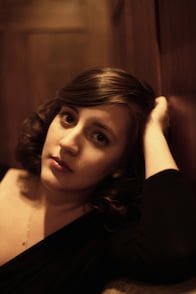 Another track from the album is Old Numbers, about having old lovers’ numbers in your phone…
Another track from the album is Old Numbers, about having old lovers’ numbers in your phone…
“That was actually Skylar Wilson’s idea. It was one of the best ideas he had, it was so funny. We are all dogs in our way. I think that song is kind of funny because it’s something people don’t want to talk about but we’ve all been there. In fact, I think I was there last night but luckily I had no wi-fi.
And For The Rabbits looks at relationships and the loneliness of settling for someone…
“That’s another song from someone else’s perspective. I wrote that when I was 16, about a couple who are still together today. So it must have worked. One man’s miserable relationship is another man’s lifelong commitment!”
Finally tell us about Sinful Wishing Well on the album Own Side Now – which you sung on [UK current affairs programme] Newsnight a few years back, and which would have been many British fans’ first introduction to your work.
“I think that’s the song I’m most proud of. It came from a very dark place. I wrote the song when I was 19. There is one thing about the ends of relationships that I think are the most milkable and that is the feelings you have that are very negative and if you find a way to make those feelings beautiful.
“It’s like fado, Portugese folk music, which is my favourite thing. It’s about accepting your plight of misery and love and moving forward and making something gorgeous out of it.”
Interview: Nic Rigby (@nicrigby1)
Nic is part of Norwich band Emperor Norton – @emperornorton1 on Twitter – and organiser of Uke East Music Festival.
To keep up with all things Caitlin Rose-related, visit her official website




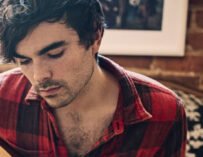
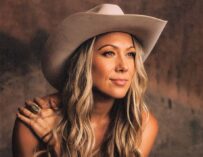
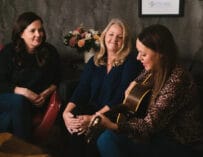
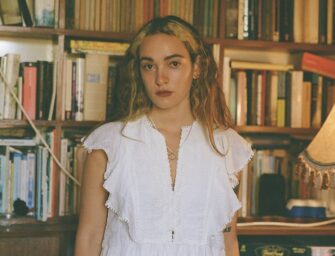
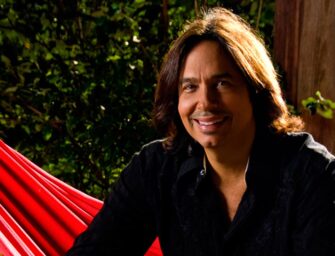
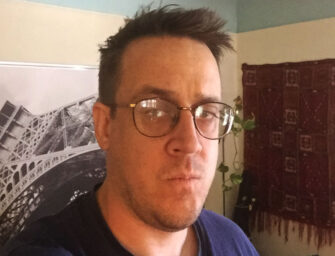

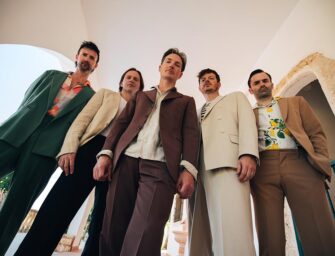























Related Articles